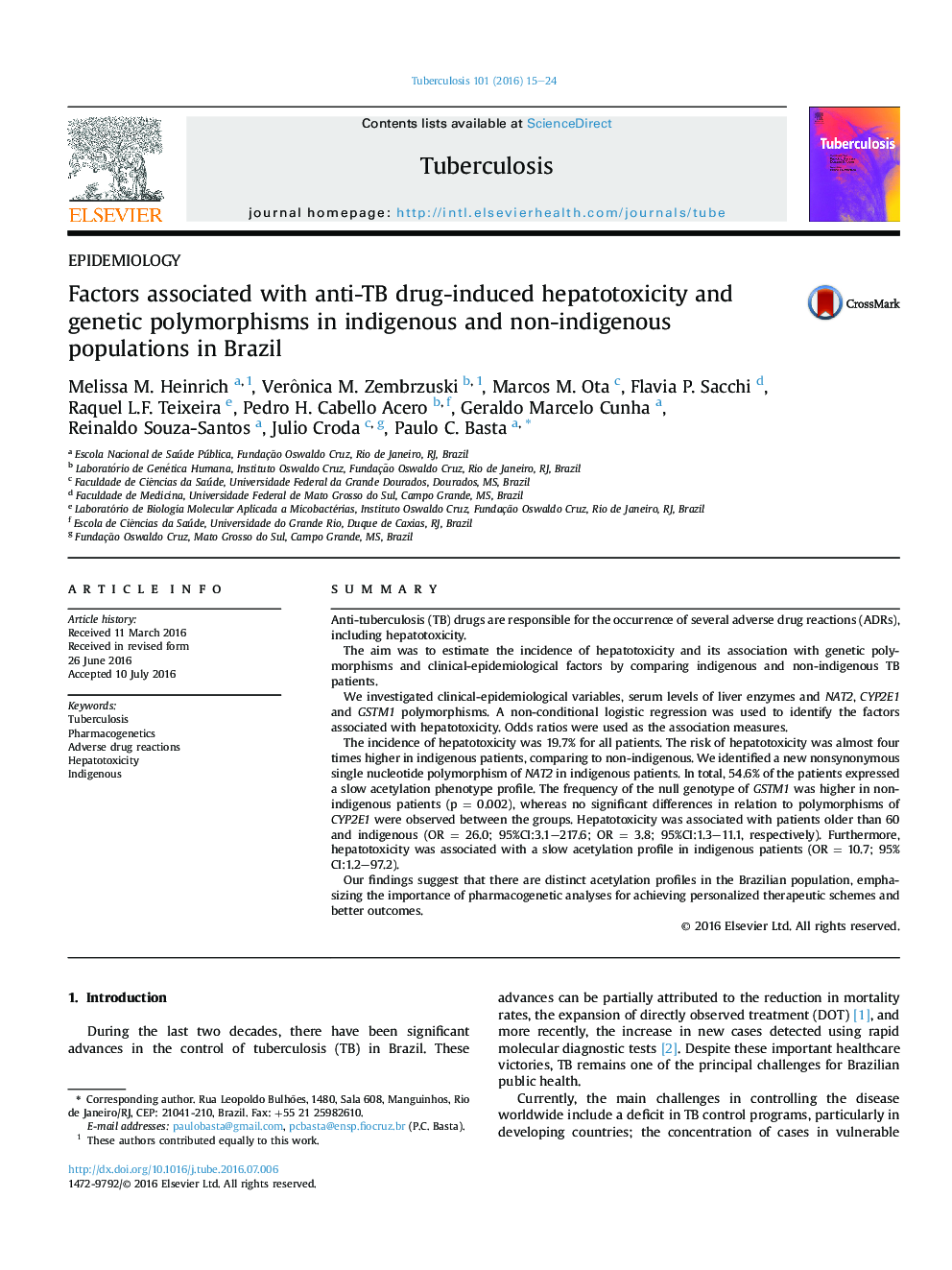| کد مقاله | کد نشریه | سال انتشار | مقاله انگلیسی | نسخه تمام متن |
|---|---|---|---|---|
| 2401378 | 1551706 | 2016 | 10 صفحه PDF | دانلود رایگان |
SummaryAnti-tuberculosis (TB) drugs are responsible for the occurrence of several adverse drug reactions (ADRs), including hepatotoxicity.The aim was to estimate the incidence of hepatotoxicity and its association with genetic polymorphisms and clinical-epidemiological factors by comparing indigenous and non-indigenous TB patients.We investigated clinical-epidemiological variables, serum levels of liver enzymes and NAT2, CYP2E1 and GSTM1 polymorphisms. A non-conditional logistic regression was used to identify the factors associated with hepatotoxicity. Odds ratios were used as the association measures.The incidence of hepatotoxicity was 19.7% for all patients. The risk of hepatotoxicity was almost four times higher in indigenous patients, comparing to non-indigenous. We identified a new nonsynonymous single nucleotide polymorphism of NAT2 in indigenous patients. In total, 54.6% of the patients expressed a slow acetylation phenotype profile. The frequency of the null genotype of GSTM1 was higher in non-indigenous patients (p = 0.002), whereas no significant differences in relation to polymorphisms of CYP2E1 were observed between the groups. Hepatotoxicity was associated with patients older than 60 and indigenous (OR = 26.0; 95%CI:3.1–217.6; OR = 3.8; 95%CI:1.3–11.1, respectively). Furthermore, hepatotoxicity was associated with a slow acetylation profile in indigenous patients (OR = 10.7; 95%CI:1.2–97.2).Our findings suggest that there are distinct acetylation profiles in the Brazilian population, emphasizing the importance of pharmacogenetic analyses for achieving personalized therapeutic schemes and better outcomes.
Journal: Tuberculosis - Volume 101, December 2016, Pages 15–24
